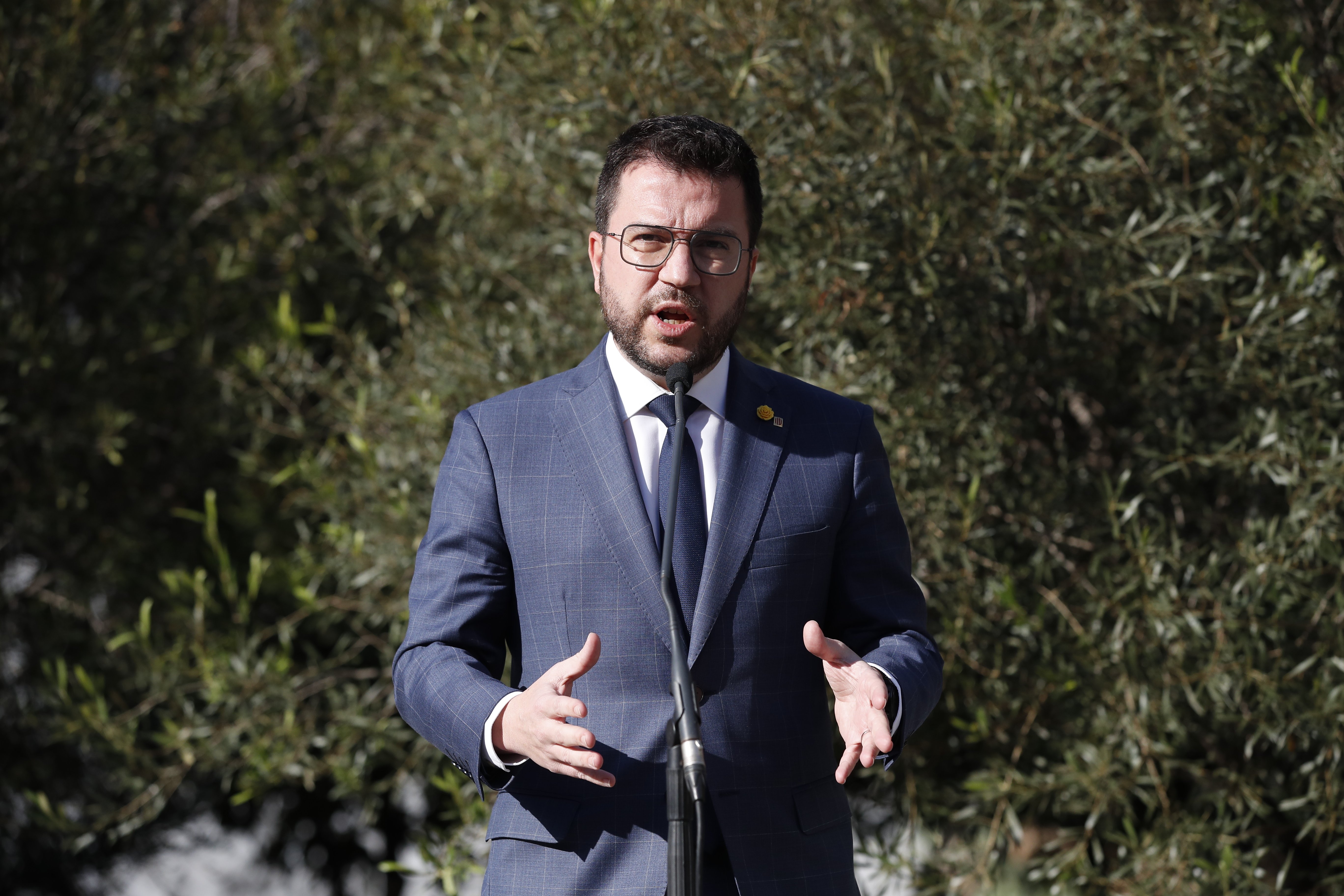Pere Aragonès speaks. This Friday, the president of Catalonia has given his assessment of the language agreement between the PSC, ERC, Junts and the Comuns in Parliament, which for the first time recognizes Spanish as a language of use in schools and delegates the decision to each school centre, while defining the Catalan language as the "centre of gravity" of the education system - an agreement which instantly received such strong criticism from groups close to the Catalan language and to independentism, that one of the signatories, Junts, has now left its support conditional on broadening the consensus. Speaking today, Aragonés has affirmed that the agreement is good, backing the breadth of parliamentary support it has achieved. "When it comes to language, we have to make every effort to reach the widest support," he said. He also stated that the pact is a response to the ruling of the High Court of Catalonia which imposed a quota of 25% of classroom time in Spanish. For the president, the keys to overcoming this obstacle are the deal's "very broad political consensus, pedagogical criteria and very solid juridical position".
The proposal is based on the premise that Catalan is "Catalonia's own language" and "the language normally used as the language of instruction and learning in the education system". But for the first time, the amendment also incorporates Spanish as a language used in school, and states that it will be the schools that decide on its use, taking into account each school's sociolinguistic situation: "Spanish is also used in the terms set by the language projects of each centre". It maintains that in order to achieve an oral and written mastery of both Catalan and Spanish at the end of compulsory education, the teaching of the official languages "must have an adequate presence guaranteed". Aragonès, however, gave the view that the modification of the law does not harm Catalan and push Spanish harder, but quite the opposite. "It favours the weakest language, and the reality is that the weakest language in terms of knowledge levels and usage ability in primary and secondary schools in Catalonia, unfortunately, is Catalan." In the same vein, the president assessed that the agreement strengthens the language immersion policy and maintains the current model.
Aragonès: "The agreement is based on favouring the weakest language, and that is Catalan"
Warning to Junts
Junts held a long meeting of its parliamentary caucus last night, after some sectors of the party were upset by the agreement. The Carles Puigdemont-led party has conveyed to the other groups that its support for the deal depends on the ability to find an "essential consensus" with the organizations that defend the Catalan language and also the educational community. Party sources warn that the agreement will be derailed if no consensus is reached. ERC has accused Junts of undermining the accord for partisan motives. Pere Aragonès used his press appearance today to address the critics in Junts as well, warning them against abandoning the agreement: "I hope that the four parliamentary groups that have reached this agreement very responsibly will continue to support it, it can't be otherwise," he said. "I am convinced that the work that has been done in recent weeks will be backed by all parliamentary parties."
Damned by the CUP
"Today you have perpetrated the abandonment of language immersion and the defence of the Catalan language, forever," said CUP deputy Dolors Sabater during the plenary session of the Catalan Parliament on Thursday, when she had the floor to take a position on a motion on audiovisual production in Catalan. The representative for the pro-independence CUP said that the decision opens the door for the end of the use of the Catalan language as vehicular language in schools, and warned that at the same time that the courts are accelerating the tools against linguistic immersion in Catalan, "the autonomous government, once again obedient and submissive, is destroying a strategy that has been in force for 40 years and favouring the minoritization of Catalan".
Another who has spoken about the deal is the leader of the Catalan Socialists (PSC), Salvador Illa, who explained in his own words why the deal had been criticized by some sectors of the independence movement. "It's an agreement that defends Catalan and respects rather than attacks Spanish," he said. "It puts Catalan as the centre of gravity, but also Spanish as a language of instruction". On the other hand, the leader of En Comú Podem, Jéssica Albiach, stated that the deal "allows immersion and Catalan in schools to be protected", while Spanish remains "in the same position as it had: a language of instruction, just like English," Albiach said. In addition, she celebrated that in this way it is possible to keep the schools "out of the clutches of the judges".

